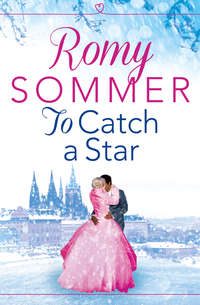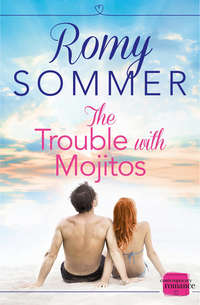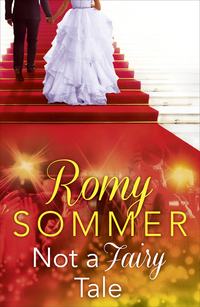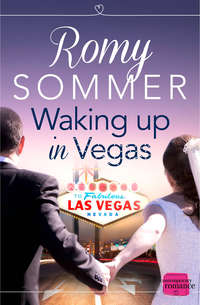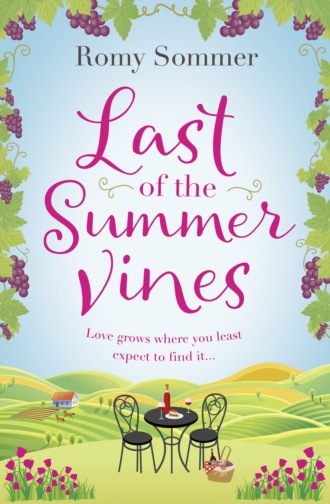
Полная версия
Last of the Summer Vines: Escape to Italy with this heartwarming, feel good summer read!
The only person I remembered was Elisa, John’s housekeeper. Nonna, I used to call her. Grandmother, though she was no blood relation. But Elisa died a few years ago. That much my father had told me in one of our rare phone calls.
‘He didn’t have any help in the house?’ I asked.
Luca shrugged. ‘After Elisa died, your father never replaced her. He was an old man who didn’t like too much change, and he didn’t like strangers. He only lived in a handful of rooms these last few years.’
That would explain the dirt and general shabbiness. Thank heavens the property still had all those acres of vines to attract potential buyers, or I’d be screwed.
‘I’d like to put this place on the market as soon as possible. Can you handle that for me?’
‘Si.’ He drew the word out, as if doubtful.
‘What price do you think I can get?’
He studied the bubbling wallpaper as if fascinated. Now, I most certainly was not imagining his hesitance. ‘It is a little complicated,’ he said. ‘Your father having been a resident here for so long, naturally he chose to have his will drawn up under Italian law, so the rule of legittima applies. It will take some time to resolve.’
What needed to be resolved? I was John’s only living relative. ‘How long?’
‘That will depend on the circumstances of the successione necessaria, the statutory shares.’
I’d had enough experience with corporate speak to recognise when someone was deliberately hedging.
‘I need a cup of tea.’ I turned away from the scene of neglect and headed down the terracotta-tiled passage to the kitchen.
Luca’s soft chuckle followed me. ‘So like your father. The one part of his English heritage he clung to was his tea.’
The high-vaulted kitchen was at the back of the house, opening onto the back yard which almost seemed cut out of the hillside. The kitchen featured the same terracotta floor tiles as the rest of the ground floor rooms, and the same deep windows. Dusty Delft plates decorated one wall. At least this room looked cleaner and more lived in than the other rooms, though it still felt more like a museum than a home. In the two decades since I’d last been here, the only new appliance to find its way into this kitchen was an electric kettle. And thank God for that.
Dismayed, I eyed the antique wood stove, with its blackened top and grimy porcelain façade. It had been my lifelong dream to own a home with a great big old-fashioned Aga. This vintage stove was nothing like that Aga of my dreams. Surely this couldn’t be the same stove Nonna taught me to bake in?
Beside the kettle, I found a tin of loose leaf tea that still smelled fresh, and a china teapot decorated with delicate pink roses. Setting the kettle to boil, I rinsed out the teapot at the enormous sink, noting the deep crack in the side of the marble, then brewed a strong pot of tea. The comforting, familiar smell in this alien place calmed me. Though I’d been fully prepared to drink the tea black, I discovered fresh milk in the fridge. Someone had anticipated my arrival. Luca?
I poured out two steaming cups, then sat across from Luca at the big wooden kitchen table. ‘Okay. I’m ready to hear it. What haven’t you told me?’
He looked distinctly uncomfortable. ‘Under English law anyone making a will has the “testamentary freedom” to choose whoever they would like to inherit their estate.’
I nodded. That was easy enough to follow.
‘However, here in Italy we have the rule of legittima, of forced heirship. This means that in Italy, the person making the will cannot freely determine who gets what. Italian law is set up to protect the inheritance of family members who might have been … overlooked.’ He smiled wryly. ‘Here in Italy we cannot threaten to disinherit a family member who has displeased us, since everyone knows the law will decide who inherits and who will not, to ensure that all heirs receive a fair share.’
I sipped my tea. Could he just get to the point, already? I didn’t see how any of this was relevant, since I was John’s only child.
Luca’s expression turned serious. ‘You see, under Italian law it is obligatory for certain immediate family members to inherit a proportion of the estate, regardless of what it says in the will.’
It finally occurred to me where this conversation was headed. ‘You’re saying there’s another heir? Someone else with a claim who might want to contest the will?’
He nodded, relieved I’d got there ahead of him. ‘You are that someone.’
It took a moment for his words to sink in. And an even longer moment for me to shut my mouth again.
Slowly, I drained the last of the tea from my cup and poured another, careful to keep my hand from shaking. Only when I’d added milk and stirred, did I risk looking back at Luca, my emotions once again under firm control.
‘You are telling me that my father did not leave me any part of his estate. He left it to someone else. And it is only because of this law of legittima that I have any claim at all?’
‘Si.’
‘Who did he leave it to?’ My voice sounded astonishingly steady, considering my entire world had suddenly shifted beneath my feet.
Sure, we were never close, but whose fault was it that my father and I were as good as strangers? I was the only child he’d ever had, and this was how little he’d cared for me?
‘He left it to Tommaso.’
That name again.
At my blank expression, Luca added: ‘John’s business partner.’
I didn’t even know my father had a business partner. The last time we’d spoken, at Christmas on one of our semi-annual phone calls, we hadn’t talked about anything consequential. I’d asked after the vineyard, and John told me one of his wines had won some award. He’d asked about my work, and I told him everything was fine, as I always did.
I cleared my throat. ‘So what are my chances of inheriting anything?’
‘The chances are good that you will receive at least half the value of the property. The courts are very fair that way, but Italian court cases can drag on for years, so we should try to settle. Tommaso is a reasonable man and we will talk to him. If we can persuade him to buy you out of your share straight away, then everything can be resolved amicably. Alternatively, the property could be sold, and you and Tommaso can split the profits equally between you once the debts are paid.’
Of course there were debts. There always were. And no one knew better than I how to finance them, re-structure them, and turn them to good use. ‘How much debt?’
‘Several loans, and your father re-mortgaged a few years ago to finance new equipment for the farm. The balance still owing stands at nearly three million euros.’
My breath whistled out. According to my research, properties this size sold for anywhere between three and five million. But they had fully renovated villas. So not only would I have to share the proceeds of John’s estate, I’d be lucky if there were any proceeds.
I sipped my tea. It tasted bitter. Or maybe that was just the bad taste in my mouth. For so many years I’d resented this land because it was the only thing John ever loved. That it had so little value only made it worse. I’d been worth less to him than a crumbling building with grand pretensions and a heavily mortgaged farm.
‘I guess I need to call the taxi back then. If this property doesn’t belong to me, I can hardly stay here.’
‘Tommaso is happy for you to treat the castello as your own until this is settled.’
How magnanimous. ‘So what do we do now?’
‘You sound like your father. Always so practical.’
What else could I be under the circumstances but practical?
Luca pushed away his cup of only partially-drunk tea. ‘We will need to complete the paperwork to prove who you are, and to confirm that you will contest the will. But since it is now nearly five o’clock on a Friday afternoon, there is not much more we can do today. Tomorrow morning at ten, you and Tommaso will meet at my office, and we will discuss how to proceed.’
I walked Luca to the front door, where he handed me the massive set of keys. I took them, feeling like a fraud. This wasn’t my house. My father had chosen to leave everything to someone else, someone he valued more highly than his own daughter.
Luca had to help shut the front door, him pulling and me pushing. It was not the most dignified of farewells, and with the door shut between us I couldn’t even say a proper goodbye. Instead, as his little sports car revved to life and roared off down the drive, I sank back against the big warped wooden door, energy spent.
Perhaps I was more tired than I realised. I was glad I’d only have to face my father’s mysterious business partner tomorrow, because right now all I wanted was to curl up in a ball, with a duvet pulled over my head, and hide from the world.
Chapter 2
Chi cerca, trova, e talor quel che non vorrebbe
(He who seeks, finds, and sometimes finds what he would rather not)
I wrestled my cases upstairs. The stairs, made of stone, seemed solid enough, but the wrought iron hand railing wobbled at my touch. The house needed a lot of work. Maybe this Tommaso guy would be just as happy as I to be shot of the place?
I couldn’t remember how many bedrooms the house had. Lots, it had seemed to my kid self. But considering how impressed I’d been by a few decorative crenellations, maybe not as many as I’d thought. I started with my father’s room, peeking inside, then shutting the door quickly. I wasn’t yet ready to face the tumbled emotions evoked by his personal space.
Instead, I chose the guest room at the opposite end of the long corridor, the same one I’d used as a child. Both the shutters and the curtains were closed. I set my smallest bag down on the bench at the foot of the wooden four-poster bed, dropped the big wheelie bag in the middle of the floor, and hurried to open the windows. Dust motes danced in the light when I gingerly opened the drapes, but the room appeared reasonably clean, and the bed was freshly made, with new bedding; grey and masculine-looking pillows and duvet.
Kicking off my shoes, I climbed under the duvet, pulled it up over my head, and let sleep take me away – away from the strangeness of Italy, this silent house and its memories, back to the only place I’d ever felt truly at home: that sixth floor corner office in Cheapside from which I’d been banned for four interminable months.
When I woke, disoriented, and with my empty stomach complaining, reminding me I hadn’t eaten anything since the quickie pain au chocolat and coffee in the airport that morning, the room was in pitch darkness. Silence reverberated in my ears. No distant hum of traffic, no muted sounds of the neighbours’ telly, none of the small, comforting sounds of my housemates moving in the house. I couldn’t remember when last I’d felt so utterly alone. Probably not since the last time I was in this house.
Somewhere in the house something creaked, and I shot up off the bed.
The castello felt very big and very empty. How far away were the nearest neighbours? Was there anyone else on the property at night, any workers, or a night watchman? Would anyone hear if I screamed for help? I hadn’t thought to ask Luca.
Barefoot, I tiptoed to the bedroom door and pressed my ear against it, but there were no other sounds. The door squeaked as I opened it, making me jump.
This is stupid. You’re a grown woman. You’re a competent, successful, twenty-first-century woman who can take care of herself. And I was hungry.
The kitchen hadn’t seemed so far away when I was a kid. I made my way down through the darkened house, not switching on any lights. Even if I could remember where the switches were, I didn’t want to turn myself into a target on the off-chance there was an intruder.
The vast kitchen with its high-beamed ceiling was eerily full of looming shadows, and the yellow lamplight spilling from the single overhead lamp did nothing to dispel the gloom. I filled the electric kettle, then rinsed out the teapot to brew a fresh pot. But tea wasn’t going to be enough to silence my grumbling stomach. Had the considerate person who’d left milk and made up my bed also left food?
There was nothing in the kitchen itself, but John always loved biscuits with his tea. That would be better than nothing. So I headed into the pantry, and was still groping for the light switch when I heard a sound that turned my veins to ice. I froze. The outer kitchen door creaked open.
The wind blowing open an unlatched door? Ghosts?
But it was worse than ghosts. The high-pitched creak turned into an ominously final bang as the door shut again, and then there were heavy, booted footsteps across the kitchen floor.
My heart leapt into my throat. It was beating so hard, I was sure I was at serious risk of a coronary. Forget the stress of a corporate job. This was a million times worse.
With my heart thudding loudly enough against my ribs that the intruder could probably hear it on the other side of the pantry door, I clung to the door handle, steadying myself, relieved to be hidden here in the pitch dark. With my free hand, I groped behind me, and my fingers hit cold iron, rounding on a solid, heavy handle.
The door handle twisted unexpectedly beneath my fingers and I squealed, louder even than the handle had, giving myself away.
The pantry door swung open, and all my blood drained to my toes.
‘Sarah?’ He was a big man, tall, broad-shouldered, and built like a bouncer.
He reached past me, and I flinched back, swinging with all my might just as the tiny pantry flooded with cold white light.
In the moment before my weapon connected with solid flesh, I glimpsed the intruder. He was dark-haired, bearded, and terrifying. He grunted and staggered back, clutching his head.
‘What the hell?!’ His accent was thick, not immediately traceable, but he spoke in English without even thinking, I noted, as I gripped the heavy metal object close to my chest.
And he knew my name. Oh heavens.
Probably not a burglar after all.
The man glowered at me, still holding his head. ‘Why are you hiding in here?’
‘I wasn’t hiding. I was looking for biscuits.’
‘In the dark?’ He removed his hand from his forehead and there was a streak of blood on his fingers, and even more on his brow where a long gash oozed.
‘You’re bleeding!’
He scowled. ‘Of course I am. You’re lucky I’m not bloody unconscious, or worse.’
I glanced at the weapon in my hand. I held an old-fashioned iron for pressing clothes, one of those solid antique cast-iron types that opened up to place hot coals inside. A formidable weapon indeed. ‘I am so sorry! I thought you were a burglar.’
He moved to lean against the scarred Formica kitchen counter, as if unable to stand without help, and I hurried to his side to offer support, even though I still felt as shaky as a budding spring leaf.
He brushed me away, irritable. ‘How can I be a burglar when I live here?’
‘You live here?’ Oops. Luca hadn’t mentioned anyone living here. I took a wild guess. ‘You’re Tommaso?’
‘Of course. Who else would I be?’ he snapped. I could hardly blame him for his surliness. The blood was trickling now down his temple, and his face was paler than it had been when he’d loomed over me in the pantry door.
I felt a tad pale too. The bedding upstairs was masculine. Had I pulled a Goldilocks and slept in Baby Bear’s bed? Not that this man could be remotely confused with a baby bear. More like a great big, angry Papa Grizzly.
Until he swayed on his feet.
‘You need to sit.’ I set down the old iron and pulled out a chair from the kitchen table. Casting me another annoyed glance, he slid into it. Satisfied that at least he wasn’t likely to collapse on the floor, I hurried to the cracked sink and wet a tea towel, which I used to dab at his forehead until the blood stopped trickling and the wound looked relatively clean. Thankfully it was a shallow cut and shouldn’t need stitches. I just hoped the iron wasn’t rusty enough to cause an infection. ‘You’ll need antiseptic and a band aid, to keep the cut clean. Where will I find them?’
‘Under the kitchen sink.’
I found a first aid box under the sink and set it on the kitchen table, rooting through its jumbled contents for band aids and antiseptic. He flinched when I dabbed iodine on the cut but didn’t make a sound. Done at last, I moved back to the kettle and set it going again. I needed tea more than ever. In fact, I could do with a shot of brandy, but I wasn’t brave – or stupid – enough to ask my host where to find his liquor cabinet.
‘Tea?’ I offered, bringing the filled teapot and two mismatched cups to the table.
‘Yes, please.’
While I poured, I sneaked a surreptitious look. He wasn’t as old as the beard had at first made him appear, nor quite as rough and threatening as he’d first seemed. His thick hair was long, almost to his shoulders, though not as shaggy as I’d first thought.
But even if he wasn’t a terrifying burglar, he still wasn’t Baby Bear. He was the rightful owner of this castello, I was his guest, and probably a very unwelcome one at that – now more than ever.
‘Shall we start over?’ I infused as much good cheer into my voice as my still jittery nerves could manage. ‘I’m Sarah Wells, John’s daughter, and I’m very grateful you’re letting me stay in the house.’
He said nothing, just eyed me with a cool, grey gaze that was more than a little hostile. Okay, so I wasn’t going to get the red carpet rolled out for me any time soon.
I cleared my throat and tried again. ‘Luca didn’t tell me you were living in the house.’
He gave me an odd look. ‘I don’t. I live in the cottage.’
The cottage was across the back yard. It had been converted from the old stable block back in the Fifties and was where the housekeeper Elisa had lived.
‘Okay. So what are you doing here in the kitchen?’
‘I saw the light on and came over to say hello. I thought you might want dinner.’ He waved, and I turned to look behind me at the tray he must have set down on top of the old wood stove before coming to find me in the pantry. Only now did I become aware of the aromatic smell filling the kitchen. My stomach pulled tight, and not just from hunger.
He’d been nothing more than neighbourly, and I’d bashed him over the head with the nearest weapon I could find. Not a great way to open negotiations.
I forced a polite smile I didn’t feel. ‘Thank you. That’s very kind.’
His eyes narrowed. An uncomfortable silence filled the room but I refused to show any weakness to this intimidating man, so I ignored it and returned his hard gaze.
There was something oddly familiar about his light eyes, blue-grey, with an emphasis on the grey.
Then realisation struck. ‘Tommy?!’
The discovery that this tall, broad-shouldered, bearded man was my old childhood friend rocked me even more than the fear that a complete stranger was breaking into the castello. ‘You were my father’s business partner?’
His eyes narrowed further. I didn’t even think that was possible. ‘No one’s called me that since my mother died. You didn’t know?’
The mental adjustment took me a long moment. I couldn’t help myself – I stared openly at him now. If I looked hard enough, past the long hair and scraggly beard, I could just about see a glimmer of Elisa’s grandson, the boy I used to play with when he’d come to visit during those never-ending summers so long ago.
I only ever knew him as Tommy, the English-speaking kid from Edinburgh, not as Tommaso, but of course he was half-Italian from his father’s side. His accent, always a convoluted mash-up of Scottish and Italian, certainly leaned more heavily now toward his Italian side. How long had he been living here?
‘I’m sorry about your mother. And Nonna.’
He shrugged, a simple gesture that managed to convey a great deal, a uniquely Italian ability. I’ve never met an English person able to say so much with nothing but body language.
‘My grandmother was old, and it wasn’t unexpected, but my mother … it was nearly nine years ago now. She had cancer, and in the end her death was a mercy.’
I’d never met his parents, but still felt a pang for his loss. Like me, Tommy was sent to Italy alone as a child. In my case, Geraldine had been eager to get rid of me, but for Tommy it had been out of necessity. His parents had both worked, and they hadn’t had time to entertain an energetic youth all summer. And his grandmother had been delighted to have him. He’d been wanted.
His visits to his Nonna Elisa had been the highlight of my summers. Even at the age when most boys would have been horrified to have a younger girl tagging along wherever they went, we’d been friends. We’d explored this big house together, run wild on the farm, gone fishing and truffle hunting and blackberry picking together. And then there’d been that last summer…
Involuntarily, my gaze dropped to his mouth. Tommy always had the most sensuous mouth for a boy, with full lips that tasted of … I blushed, and averted my gaze, but not before he noticed.
His eyes narrowed again as he studied me. ‘Your hair has grown since I last saw you.’
‘Well, it has been twenty years.’ I touched the end of my long braid. I’d been growing it out for years, mostly because I hadn’t had time for anything but hurried trims.
‘Nearly twenty. I like your hair long.’
‘Well, I liked your hair shorter.’
The amused gleam in his eyes was very much the young man I remembered from that last summer. Always full of mischief, needling me, pushing my boundaries.
‘The last I heard, you were still living in Edinburgh,’ I said to fill the sudden, awkward silence.
‘That was a long time ago. I moved here soon after my mother died. Nonna was getting old, and I didn’t want her to be alone.’
Nearly nine years. ‘My father never told me.’ I bit my lip, a habit I thought I’d grown out of. There were so many things John and I never discussed, and now we never would.
‘We have a meeting tomorrow with Luca at ten.’ Tommaso lifted the teapot, offering to re-fill my cup, but I shook my head. ‘We’ll drive together. We should leave at about nine-thirty.’
I nodded, though the thought of spending even half an hour in a car with this man I once knew so well, who was now a stranger, only made me more anxious. I rose to clear away the teapot and cups. ‘In that case, I’m going to bed. It’s been a long day.’ A shattering day. Half an hour ago, I’d dreaded being alone, now I craved it.
Tommaso rose. ‘You can leave the iron when you go to bed. This is a very safe district. You can sleep peacefully.’ The wicked glint was back in his eyes.
‘Thank you for the food,’ I said, as he stepped out into the back yard. He merely nodded. I didn’t wait to watch him cross the yard to the cottage. I shut the door, flicked the latch, and heaved a sigh. Then, grabbing the tray, I bolted back upstairs, not pausing to see what was under the cloth covering, not even pausing to catch my breath, until I was safely in my room with the door shut and my wheelie case pushed up under the door handle, creating a barrier between me and the rest of the empty, echoing house.
Конец ознакомительного фрагмента.
Текст предоставлен ООО «ЛитРес».
Прочитайте эту книгу целиком, купив полную легальную версию на ЛитРес.
Безопасно оплатить книгу можно банковской картой Visa, MasterCard, Maestro, со счета мобильного телефона, с платежного терминала, в салоне МТС или Связной, через PayPal, WebMoney, Яндекс.Деньги, QIWI Кошелек, бонусными картами или другим удобным Вам способом.


